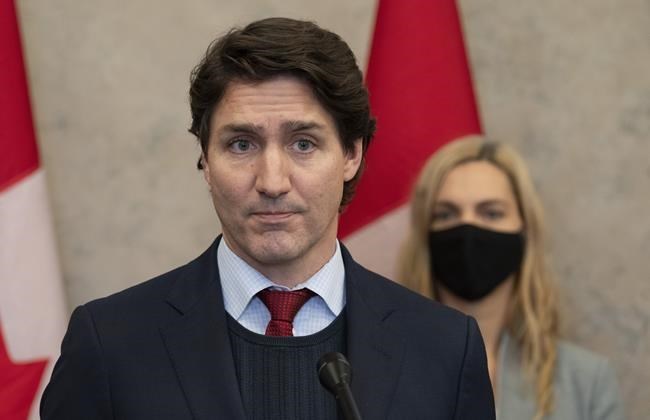OTTAWA — Prime Minister Justin Trudeau says his Liberal government remains committed to ending all long-term drinking water advisories that exist on First Nations, despite not setting a new date to do so.
Trudeau discussed the work done up to now on the issueduring an address Thursday to a virtual gathering of chiefs with the Assembly of First Nations (AFN).
To date, he says, the Liberals have helped lift 120 long-term drinking water advisories. A government website reports there are 42 such advisories still in place in 30 different communities.
"I agree that it's unacceptable that some communities are still waiting," Trudeau said.
"So I can assure you that everywhere there's a long-term drinking water advisory left there's a project team and an action plan in place to resolve it."
Ensuring reserves across Canada have access to clean drinking water was a signature pledge he made around reconciliation before becoming prime minister in 2015.
Trudeau had promised to end all long-term drinking water advisories by March 2021, which didn't happen.
Indigenous Services Minister Patty Hajdu has saidin recent weeks that she's reluctant to set a new deadline for when the remainder of these notices will be lifted.
Sheexplained each community has a different set of priorities, and some have unique challenges, such as their remoteness of their location, which impacts how quickly the work can be done.
Trudeau spent his speech on Thursday highlighting the steps his government has taken to advance reconciliation. Besides helping improve access to clean drinking water, the prime minister touted the federal money spent on building more schools on First Nations.
His address to the gathering comes as Indigenous leaders and more non-Indigenous Canadians demand justice from the federal government over its role in creating the residential schools system, where thousands of Indigenous children faced physical and sexual abuse.
Added scrutiny to Trudeau's promises around reconciliation was sparked this year by First Nations' confirming the finding of unmarked graves at former residential school sites.
He opened his speech with the issue, and spoke of his government's pledge to appoint a special interlocutor to work with Indigenous communities as they continue searching for unmarked graves.
The position, Trudeau said, is designed to "further advance justice on residential schools."
"The children who never returned home must not be forgotten."
Earlier in the week, AFN national chief RoseAnne Archibald expressed concerns about that role to Justice Minster David Lametti, saying she's heard from chiefs on the importance of making sure the federal government doesn't set up a position where it is responsible for investigating itself.
This report by The Canadian Press was first published Dec. 9, 2021.
Stephanie Taylor, The Canadian Press

